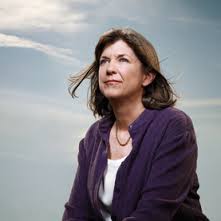Judith Curry: Facing Climate Realities in the Modern, not Model, World
Washington, D.C., February 18, 2014 – Climatologist Judith Curry, dean of the Georgia Tech School of Earth and Atmospheric Science, is a heretic to those who embrace the conventional litany about global warming. Once a devotee the accepted view, in recent years she has raised the yellow flag of skepticism. That’s made her a target of activists and some former colleagues, who have directed scurrilous attacks against her reasoned critiques of conventional climate science.
Nonetheless, Curry remains a prominent critic of contemporary climate science and a skeptic of the conventional wisdom on global warming. Curry’s late January testimony at a hearing before the Senate Environment and Public Works Committee is a clear statement of her controversial, even heretical views. Some would burn her at a scientific stake, although she is no Joan of Arc. She’s just a scientist doing the job of raising scientific questions.
Let me state up front that I have followed Curry’s work for several years. I find her, along with Roger Pielke, Jr., at the University of Colorado, among the few scientists to proclaim that the conventional emperors of climate science are often parading naked. Curry and Pielke don’t deny the consensus view of climate change, but point out that it might just be wrong. To many in the disciplines of climate orthodoxy, that renders Curry and Piekle anathema.
Curry on January 16 told the Senate committee, “I am increasingly concerned that both the climate change problem and its solution have been vastly oversimplified.” In particular, Curry is a profound critic of the global circulation models that advocates of climate policy rely upon for their scientific observations and policy prescriptions.
“My research on understanding the dynamics of uncertainty at the climate science-policy interface has led me to question whether these dynamics are operating in a manner that is healthy for either science or the policy process,” said Curry. “I see a growing gap between what science is currently providing in terms of information about climate variability and change, and the information needed to understand and manage associated risks.”
Curry, long a devastating critic of the computer climate models, focused her testimony on some of their failings. She noted that the UN’s Intergovernmental Panel on Climate Change (IPCC) latest report in September “expressed increasingly confident consensus views of the importance of anthropogenic influence on climate change,” while the same report “notes the lack of surface warming since 1998.” Oops, the empirical data doesn’t match the model predictions.
The IPCC’s latest report, said Curry, suggests “that the case for anthropogenic [manmade] warming is weaker than the previous assessment…in 2007.” The mechanism of global warming, the greenhouse effect, said Curry, “is well understood, but whose magnitude is highly uncertain. The growing evidence that climate change models are too sensitive to CO2 has implications for the attribution of late 20th century warming and projections of 21st century climate.”
In short, says Curry, the alleged scientific consensus that the globe is warming catastrophically may be based on faulty models that don’t reflect real-world evidence and overstate warming trends. That’s particularly the case with what she, Pielke, and others claim is a false assertion that global warming is associated with extreme climate events, particularly those occurring recently in the U.S. (drought) and the UK (flooding). Over the past century, she says, citing government records, winter cold extremes have declined, droughts have been less frequent, heavy rains have lessened, and rising sea levels “are dominated by local factors….”
It’s important to note that the most recent report of the UN’s Intergovernmental Panel on Climate Change disavows any linkage between global warming and extreme weather events. That has activists such as climate scientist Kevin Trenberth gnashing their teeth.
Many years ago I worked for the National Institutes of Health. I teamed up with a wonderful mathematician, Rosalind Marimont, on a project related to employment opportunity. She told me that the major obstacle mathematicians must confront in evaluating science is what she called “confusing the map with the territory.”
By that, Marimont meant that scientists too often construct elaborate and elegant maps (models in modern terms) of reality. When following the maps leads people into dead ends or the wrong neighborhoods, the mapmakers often decide that it was the people who followed the maps, not the maps themselves, that were wrong. That, said Ros Marimont, was a too-frequent example of human hubris, not of science. “Don’t confuse the map for the territory,” she warned.
Is that the case of the climate models that Judy Curry has thoroughly debunked?
